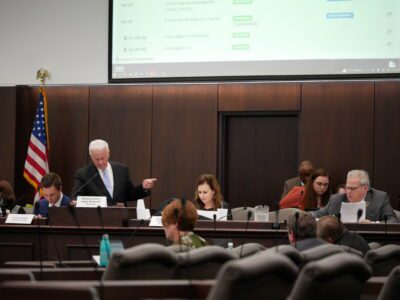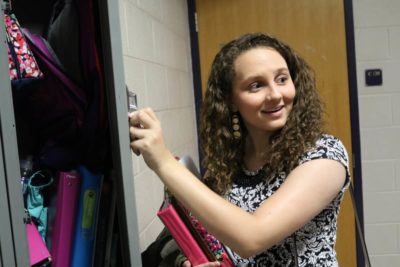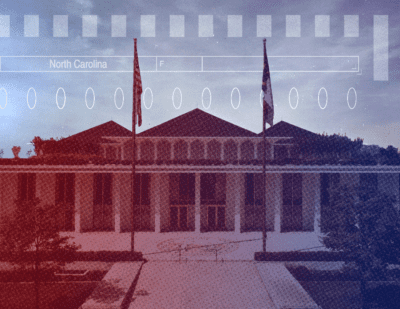
|
|
Under North Carolina law, traditional public schools are prohibited from starting the school year sooner than the Monday closest to Aug. 26 and from ending the year later than the Friday closest to June 11.
School and district leaders have long asked for more calendar flexibility, claiming the required window limits a district’s ability to meet the needs of its community. In North Carolina, the General Assembly has regulated school calendars for 20 years, largely due to the tourism industry’s concerns that starting earlier would hurt businesses.
Twenty-nine of the state’s 115 school districts plan to start school early without permission this upcoming school year, according to an annual report on school start and end dates received by the State Board of Education on Thursday. That’s a little more than 25% of districts.
The report includes planned school start and end dates for FY 2024-25, as reported by districts and schools across the state, along with the reason for any exemption to state law.
“This topic has become more sensitive in recent years,” said Vice Chair Alan Duncan.
The calendar law only applies to traditional public schools, meaning that charter schools, year-round schools, and early colleges are exempt. State law provides a very limited window for local boards of education of traditional public schools to start the school year early.
On a showing of good cause, the State Board of Education may waive the requirement that the opening date for students be no earlier than the Monday closest to August 26 and may allow the local board of education to set an opening date no earlier than the Monday closest to August 19, to the extent that school calendars are able to provide sufficient days to accommodate anticipated makeup days due to school closings. A local board may revise the scheduled closing date if necessary in order to comply with the minimum requirements for instructional days or instructional time. For purposes of this subsection, the term “good cause” means that schools in any local school administrative unit in a county have been closed eight days per year during any four of the last 10 years because of severe weather conditions, energy shortages, power failures, or other emergency situations.
G.115C-84.2. School calendar statute
There are no “good cause” exemptions listed in the report.
2023 Superintendent of the Year Dr. Don Phipps told the Board during his farewell remarks as superintendent advisor to the Board that calendar flexibility would help districts plan more professional development, teacher-parent conferences, and teacher workdays.
Phipps said that all schools that receive state funding should follow the same law.
“Local school boards should be able to choose the best start dates of school for the systems they represent,” said Phipps, superintendent of Caldwell County Schools. “… It should also be noted this law is not required to charter schools, or private schools that receive state money through the Opportunity Scholarships.”
Caldwell County Schools’ 2024-25 schedule follows state statute, per the report.
One of the 29 districts that said it planned to start school early without permission is running into a roadblock. The Carteret County Schools Board of Education adopted a calendar for the 2024-25 school year that starts classes Aug. 13. On Wednesday, Superior Court Judge William D. Wolfe issued an order declaring the calendar to be void, the News & Observer reported.
Carteret includes several tourism spots, including Atlantic Beach, Emerald Isle, and Morehead City.
Mitchell Armbruster, an attorney for three local businesses who sued the school system, told the N&O his clients are pleased with the ruling.
“All we asked for in this case was that the school district be required to follow the law, a law which the school board openly admitted they were violating,” Armbruster said in a statement. “We shouldn’t be teaching our children that it is OK to violate the law.”
The school district said in a statement that it’s disappointed in the ruling. The district said its school board will meet soon to consider an appeal, along with possibly adopting a new calendar in order to not keep students and families in limbo.
“The whole reason for the calendar we adopted in the first place was for the educational benefit of our students,” the statement said.
Carteret County Schools said in the statement that calendar flexibility allows schools to complete the first semester and final exams before winter break, which it said is good for students.
“Traditional public schools are the only schools subject to the calendar statute and its late August start date,” the statement said. “This forces traditional high schools to either end their semesters in mid-January after the winter break, or have a significantly shortened fall semester. Neither are ideal for our students’ academic achievement, yet they are our only practical choices.”
What does the report say?
According to the report received by the Board, charter schools, lab schools, regional schools, and the Renewal School District (Rowan-Salisbury Schools) are exempt “from all parts of the calendar law, except for the requirement of a minimum 185 instructional days or 1,025 hours of instructional hours and are not required to report on the start and end dates.” As such, those schools are not included in the report.
While year-round and Restart schools, as well as Cooperative Innovative High Schools (CIHS), are also exempt from required start and end dates, they are required to report those dates to the Board and are included in the report.
“The start and end dates for each school were extracted from the PowerSchool student information system and sent to the PSUs (Public School Units) to review and certify the statutory references,” the report says. “All PSUs complied with the reporting requirements.”
The report lists the qualifying statutory exemption for schools that started or ended early and listed a legislative exemption. The report does not include any notation for schools or districts that started or ended early without a qualifying exemption.
Here’s a look at the exemptions included in the report:
- 132 schools that started/ended early under the CIHS/Early College exemption.
- 77 schools had calendar waivers.
- 51 Restart schools.
- 79 year-round schools.
- Three extended calendar schools.
- Five schools who modified their calendar during the 2003-04 school year (G.S.115C84.2(d)).
The report also includes 33 schools from Rowan-Salisbury Schools, which is under the renewal school district exemption.
Here is a list of the 29 districts without listed exemptions who plan to start school early:
- Cabarrus County Schools
- Carteret County Schools
- Cleveland County Schools
- Clinton City Schools
- Elkin City Schools
- Gaston County Schools
- Granville County Schools
- Halifax County Schools
- Harnett County Schools
- Henderson County Schools
- Hyde County County Schools
- Iredell-Statesville School District
- Kannapolis City Schools
- Lee County Schools
- Lexington City Schools
- Lincoln County Schools
- Mooresville Graded School District
- Mount Airy City Schools
- Person County Schools
- Polk County Schools
- Rutherford County Schools
- Sampson County Schools
- Stanly County Schools
- Stokes County Schools
- Surry County Schools
- Warren County Schools: One of the district’s six schools does not have a listed exemption to start early.
- Washington County School School District: Three of the district’s five schools do not have a listed exemption.
- Winston-Salem/Forsyth County Schools
- Yadkin County Schools
Instead of granting calendar flexibility, the 2023 budget created a high school remote instruction flexibility pilot.
The state superintendent picked 10 high schools to participate in the pilot for the 2023-24 through 2027-28 school years. The pilot also allows students to take first-semester exams before Dec. 31. Finally, the pilot also allows the schools to use up to 30 hours of remote instruction to take the exams by that point.
Read the full report:








